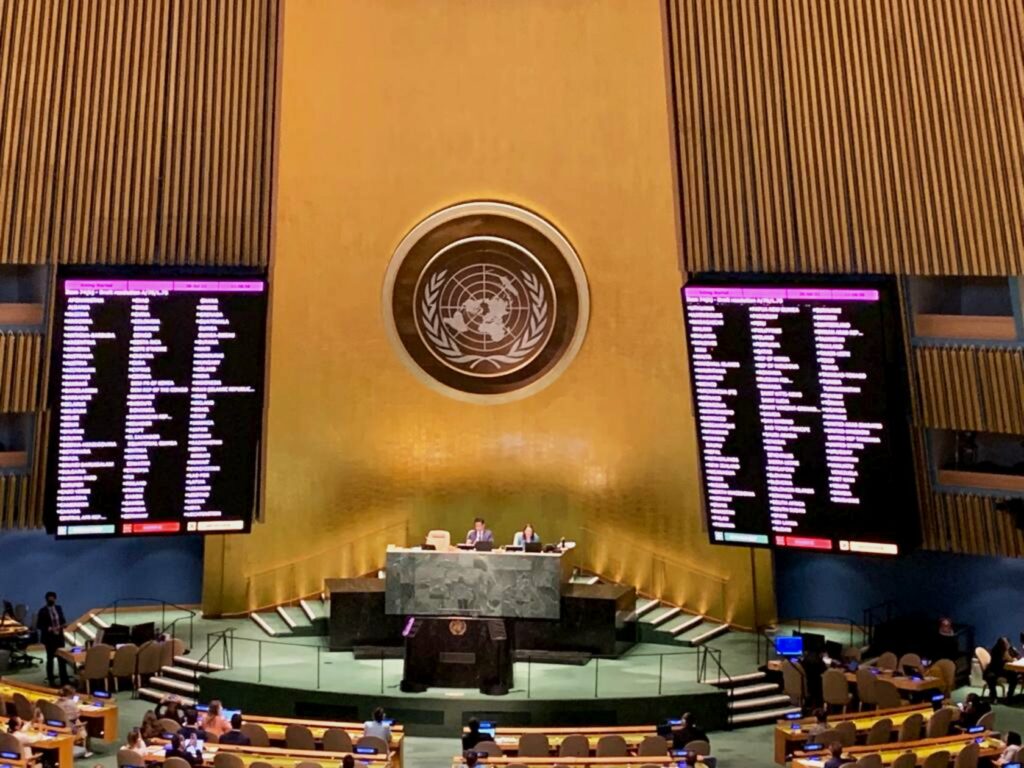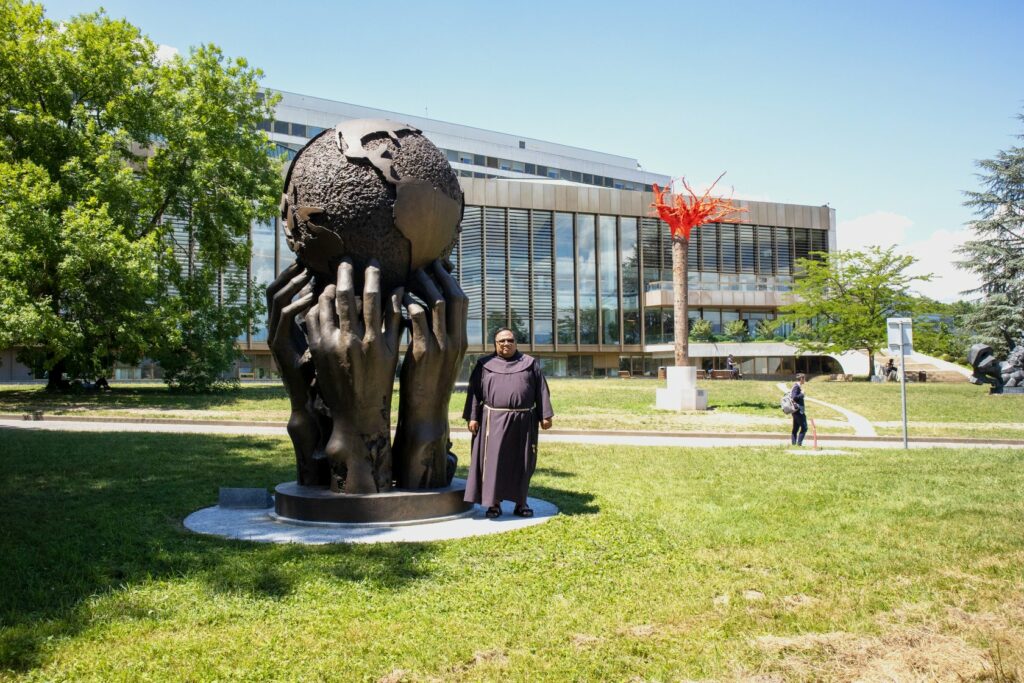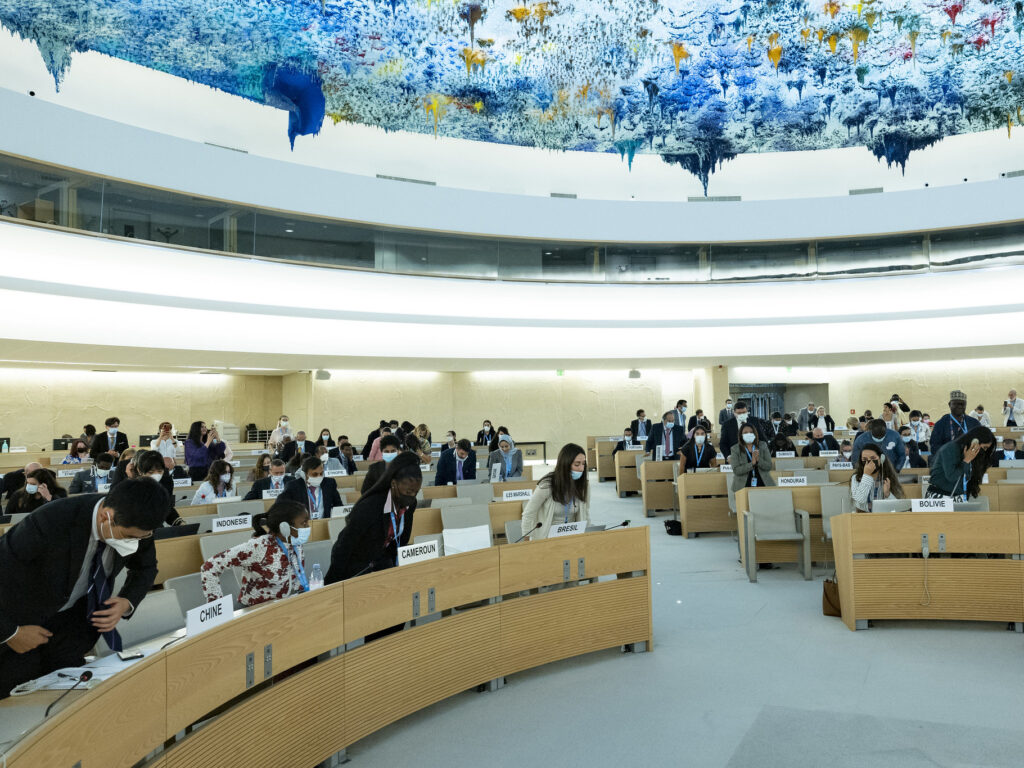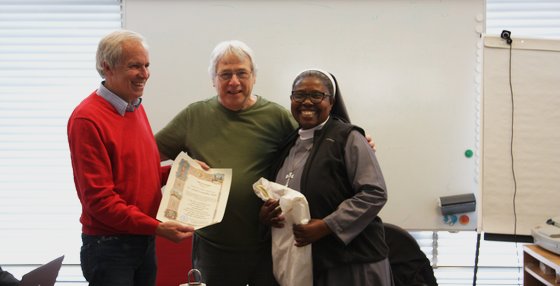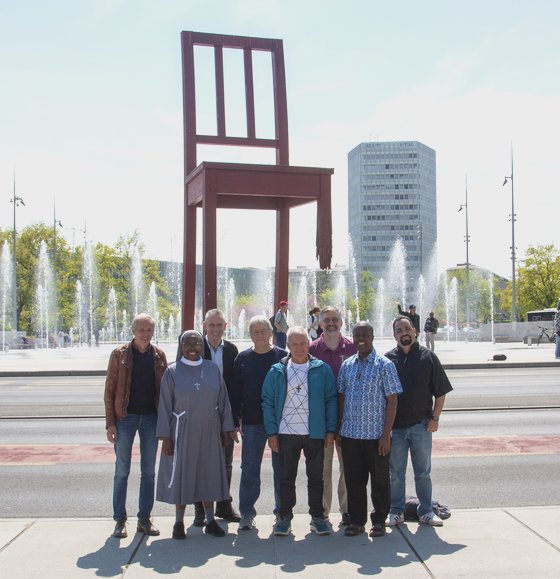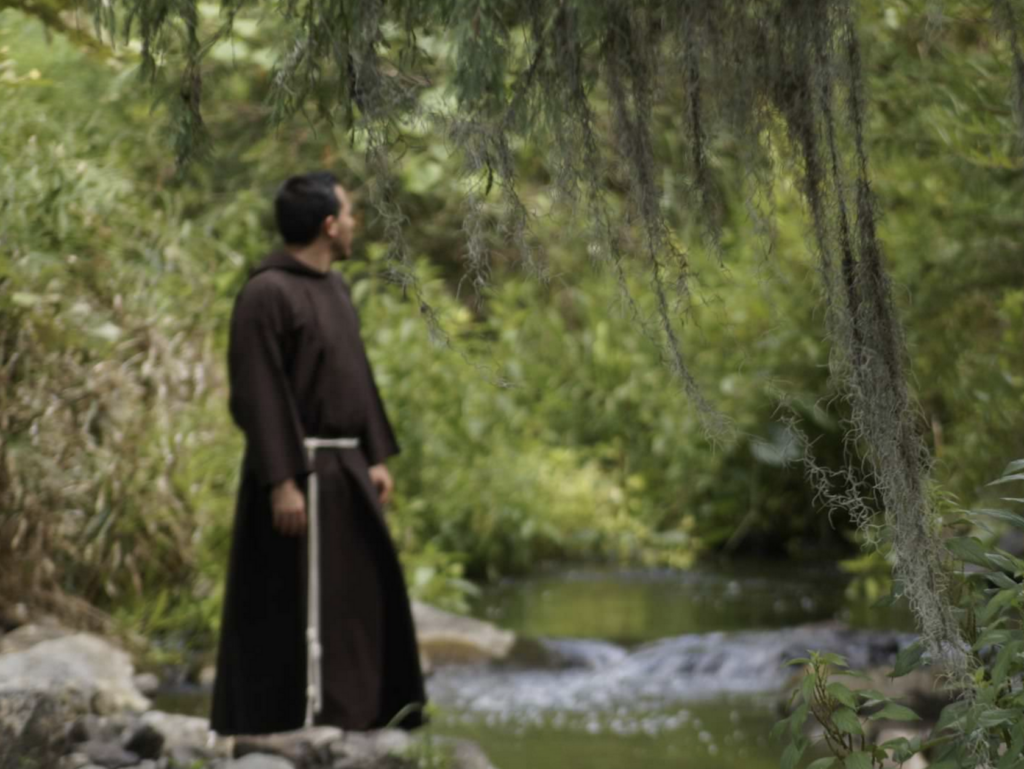The Council convened from 28 February to 1 April in a hybrid format, combining both in-person and online participation. You can find all the statements that were delivered or co-sponsored by Franciscans International below.
• • •
Item 4: General Debate – Haiti (21 March)
In the five years since the Council decided to end the mandate of the Independent Expert on Haiti, the democratic process in the country has further deteriorated. The COVID-19 pandemic, climate change, the 2021 earthquake, a political crisis and widespread organized crime have all negatively impacted human rights. This context has led to internal forced displacement and migration, with people suffering further violations while on the move. In a joint statement, we stressed that it is imperative that the Council and its mechanisms include Haiti on their agenda as a priority.
• Full statement (French)
Item 4: General Debate – Indonesia (21 March)
During the COVID-19 pandemic, the human rights situation in West Papua has continued to deteriorate, with perpetrators of serious violations among Indonesian security enjoying impunity. There is no dialogue for peace and international humanitarian access to the affected communities is denied. In a joint statement, we urged the Council to mandate a comprehensive report on the human rights situation of Indigenous Papuans.
• Full statement (English)
Item 4: General Debate – Climate change (21 March)
In a joint statement, we welcomed and expressed our support for the new UN Special Rapporteur on human rights and climate change. We encouraged the mandate holder to develop systematic and inclusive ways of working with all civil society stakeholders, including faith-based and women’s rights’ organizations. We also called on the future Special Rapporteur to promote better participation of civil society actors in national processes.
• Full statement (English)
Item 3: General Debate – the Philippines (16 March)
Despite the commencement of the implementation of the Philippines-United Nations Joint Programme on human rights, civic space in country has further decreased ahead of the upcoming 2022 elections. Human rights defenders have been killed and assaulted and face enforced disappearances, torture, arbitrary arrests, and legal harassment. We reiterated our call on the Human Rights Council to adopt a resolution this years that includes a strong focus on accountability mechanism for the on-going human rights violations in the Philippines.
• Full statement (English)
Item 3: Interactive Dialogue with the Special Rapporteur on the right to food – Guatemala (14 March)
Protecting the traditional knowledge of peasants and indigenous peoples is essential to guarantee food systems and help protect the environment. Instead of prioritizing initiatives designed to protect peasant family agriculture, the Government of Guatemala is supporting measures and laws that threaten biodiversity and native seeds. During the Covid-19 pandemic, the right to food has been further threatened, with cases of child malnutrition tripling in 2020 . During this Interactive Debate, FIAN and Franciscans International asked the Special Rapporteur what specific measures can be implemented to make an inclusive and participatory transition towards a model based on agro-ecology.
• Full statement (Spanish and English)
Item 3: Interactive Dialogue with the Special Rapporteur on human rights defenders – Guatemala (11 March)
Space for civil society in Guatemala has shrunk dramatically in the past years. The so-called “NGO Law” allows the executive branch to cancel the registration of non-governmental organizations and gives the possibility to criminalize members of organizations that receive international funds. In a context that grows increasingly hostile, over a thousand attacks against human rights defenders have been documented in 2021. The lack of an independent judiciary further enables the criminalization of defenders. In a joint statement, we urged the Council to call on Guatemala to protect human rights defenders, apply a comprehensive protection policy, repeal the NGO Law, and ensure the conditions for an independent judiciary.
• Full statement (Spanish)
Item 3: Interactive Dialogue with the Special Rapporteur on human rights defenders – the Philippines (11 March)
In joint statement, we highlighted the dangers faced by human rights defenders in the Philippines, who have been subjected to a range of violations including public vilification, intimidation, reprisals, profiling, surveillance, judicial harassment, torture, enforced disappearances, and killings. We also acknowledged the recent adoption of a HRD Protection Bill by the House of Representatives and thanked the Special Rapporteur for her strong endorsement of this legislation.
• Full statement (English)
Item 3: Interactive Dialogue with the Special Rapporteur on human rights and the environment (11 March)
Franciscans International raised the catastrophic impacts of mining pollution in Mariana and Brumadinho (Brazil) as well as in Lualaba (the Democratic Republic of the Congo). Victims have been unable obtain scientific and independent assessments of the damage caused, barring them from adequate reparations. Considering these situations, we asked the Special Rapporteur what steps States could take to ensure adequate reparations in cases of disasters that they were not able to prevent.
• Full statement (English and Portuguese)
Annual full-day meeting on the rights of the child (9 March)
Around the world, millions of children are forced to move, fleeing from conflicts, climate change, poverty, among other reasons. In a joint statement, we called on States to uphold their obligations to prevent unnecessary child-family separations. We also asked the panellists what can be done to ensure thatthe views of children in these contexts are taken into account, and that they are empowered to contribute to decision-making affecting them.
• Full statement (English)
Item 2: General Debate – Colombia (8 March)
Franciscans International welcomed the report on Colombia by the High Commissioner, as one of the more than 300 civil society organizations that called for an investigation into the serious human rights violations that occurred during the protests in April and May 2021. However, we also voiced our concern that there has been little accountability for those responsible and that structural problems, which fueled the protests, remain unaddressed. In a joint statement, FI asked the Council to urge Colombia to implement the recommendation in the report and expressed its support for continued monitoring and technical assistance by the OHCHR.
• Full statement (Spanish and English)
Item 2: General Debate – Guatemala (8 March)
Following the report by the High Commissioner, we expressed our concerns about the dismantling of public institutions that monitor the human rights situation in Guatemala. Human rights defenders and independent judicial officials continue to be criminalized and harassed, while a proposed protection policy for human rights defenders, journalists, and trade unionists has not been adopted. In a joined statement, 11 organizations called on the Council to declare Guatemala a country that requires its special attention.
• Full statement (Spanish)
Item 2: Interactive Dialogue with the High Commissioner on the report on Sri Lanka (7 March)
On 21 April 2019, the Easter Sunday bombings in Sri Lanka killed 296 people, including 82 children, and injured more than 500 others. Although initially the attack was believed to be the work of a few Islamic extremists, subsequent investigations indicate that the massacre was part of a larger political plot. There have been attempts to harass and intimidate those who demand justice, and three years later it is still unclear what happened that Easter Sunday. Cardinal Malcolm Ranjith urged the Council to continue their support for evidence gathering and to ensure an impartial investigation.
• Full statement (English)
Thumbnail photo: UN Photo / Jean Marc Ferré


